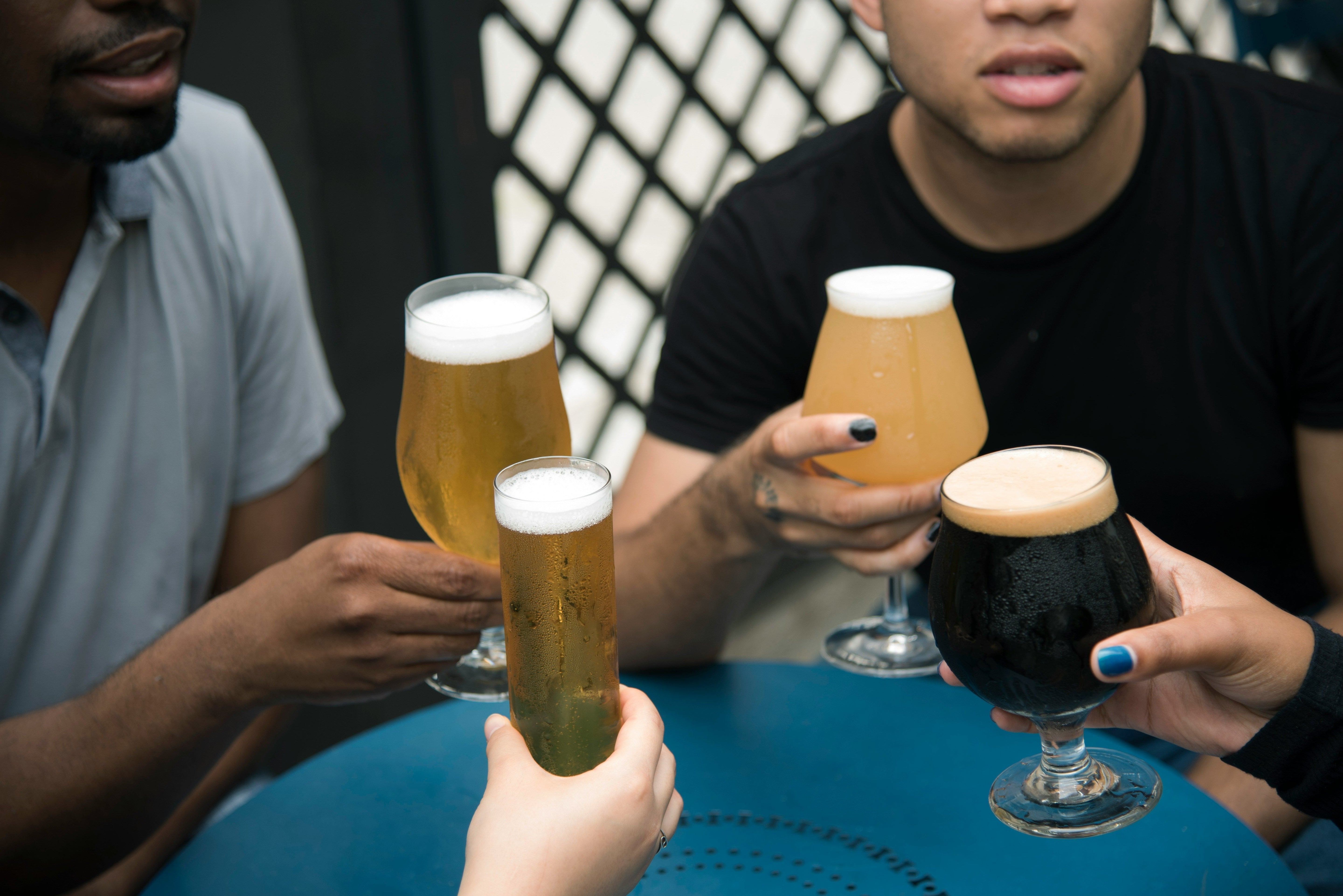
Is There Alcohol In Non-Alcoholic Beer?
So - you’re wondering if there’s alcohol in non-alcoholic beer? The answer is often yes. Unless your favourite brew i...
Read MoreOct 10, 2024

Embark on a sensory journey as we dive into the captivating world of non-alcoholic gin. In this article, we unveil the art and science behind crafting these delightful beverages that offer all the flavour and complexity of traditional gin without the alcohol. Whether you're a curious teetotaler or looking for a refreshing alternative to your favourite spirit, this exploration promises to awaken your taste buds and enlighten your senses.
Crafting alcohol-free gin is an intricate process that harmonises botanicals, distillation techniques, and cutting-edge technology. Through careful blending and distilling of unique ingredients, master craftsmen are able to achieve the perfect balance of flavours, replicating the nuanced profiles of classic gins. Expect to encounter the familiar botanical notes of juniper, citrus, and spices, carefully curated to create a drink that is both alcohol-free and undeniably delicious.
The goal of a non-alcoholic gin is to recreate the distinct flavours and aromas of traditional gin while omitting the alcohol content.
To achieve this, master craftsmen begin by selecting a wide range of botanicals that will contribute to the flavour profile of the non-alcoholic gin. Juniper berries, the key ingredient in gin, are often at the forefront, providing the signature piney and resinous notes. Additionally, a variety of other botanicals such as citrus peels, spices, herbs, and floral elements are carefully chosen to create a harmonious blend of flavours.
Once the botanicals have been selected, the distillation process begins. Traditional distillation methods, such as maceration and vapour infusion, are often employed to extract the flavours and aromas from the botanicals. However, in the case of non-alcoholic gin, the alcohol is then removed through various techniques, such as vacuum distillation or reverse osmosis.
The final step in crafting non-alcoholic gin involves the use of cutting-edge technology to enhance the flavour and mouthfeel of the beverage. This can include techniques such as molecular distillation, where specific compounds are isolated and reintroduced to intensify certain flavours or create unique textures. The result is a non-alcoholic gin that closely resembles its alcoholic counterpart in terms of taste and complexity.
The ingredients used in non-alcoholic gin are carefully selected to create a harmonious blend of flavours that mimic the complexity of traditional gin. While the exact botanicals used may vary depending on the brand and recipe, there are some common ingredients that can be found in many non-alcoholic gins.
Juniper berries, as mentioned earlier, are a key ingredient in non-alcoholic gin. They provide the distinctive piney and resinous flavour that is synonymous with gin. Other botanicals commonly found in non-alcoholic gins include citrus peels, such as lemon, lime, and orange, which add a zesty freshness to the drink. Spices like cardamom, coriander, and cinnamon are often used to add warmth and depth to the flavour profile.
In addition to these main botanicals, non-alcoholic gins may also feature a range of other ingredients, such as herbs like rosemary or thyme, floral elements like lavender or hibiscus, and even unique additions like cucumber or ginger. The combination of these ingredients is what gives each non-alcoholic gin its distinct character and flavour profile.
It's worth noting that some non-alcoholic gins may also include ingredients like sugar or artificial sweeteners to enhance the taste. However, there are also brands that prioritise natural ingredients and aim to create a sugar-free or low-sugar alternative for those mindful of their sugar intake.
The first step in distilling non-alcoholic gin is the maceration of the botanicals. This involves soaking the selected botanicals in a neutral alcohol base to extract their flavours and aromas. The length of time the botanicals are macerated can vary depending on the desired intensity of the flavours. Some botanicals may be macerated separately to allow for greater control over the final flavour profile.
After maceration, the liquid is then distilled using traditional methods such as pot distillation or vapour infusion. Pot distillation involves heating the liquid and capturing the evaporated alcohol and aromatic compounds, which are then condensed back into a liquid form. Vapour infusion, on the other hand, involves passing steam through the botanicals, allowing the vapour to extract the flavours and aromas before condensing into a liquid.
Once the distillation process is complete, the alcohol content is removed through various techniques. One common method is vacuum distillation, where the liquid is subjected to low pressure, causing the alcohol to evaporate at a lower temperature. Another method is reverse osmosis, where the liquid is passed through a membrane that selectively removes the alcohol molecules while leaving behind the desired flavours and aromas. These techniques ensure that the alcohol is effectively removed while preserving the intricate flavours of the non-alcoholic gin.
Embarking on the journey of non-alcoholic gin opens up a world of intricate flavors and sophisticated craftsmanship. This exploration into the history, ingredients, and techniques behind crafting non-alcoholic gin reveals a meticulous process that mirrors the complexity of its alcoholic counterpart. From the careful selection of botanicals to the advanced distillation methods, master craftsmen have perfected the art of creating a drink that is rich in flavor and free of alcohol.
Non-alcoholic gin offers a refreshing alternative for those who seek the nuanced taste of traditional gin without the effects of alcohol. Whether enjoyed in a classic cocktail or savored on its own, these beverages provide a delightful experience for the palate. So, whether you're a curious teetotaler or just looking to diversify your drink options, non-alcoholic gin promises a flavorful and satisfying journey that celebrates both the art and science of beverage crafting. Cheers to discovering new tastes and enjoying the complexity of gin, alcohol-free!
Have we captured your curiosity? Read on
Please enter your details below to sign in
Please enter your details below to register an account.
Forgot your password? No problem just enter your email to reset you password.